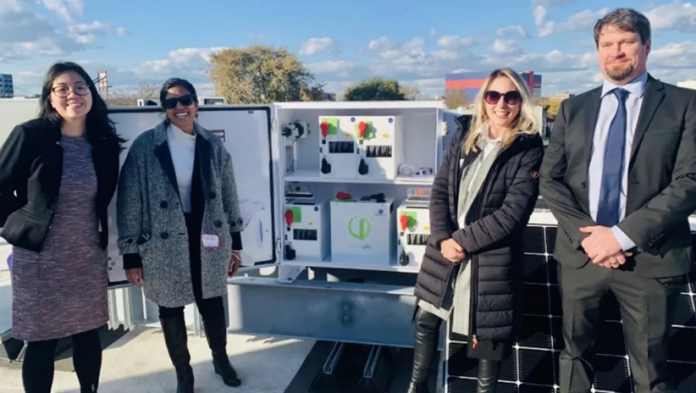Project developers Solar One and Accord Power selected SimpliPhi’s lithium ferrous phosphate-based storage solutions for these projects. They have now achieved the industry’s highest standard of safety with UL 9540 and UL 9540A fire safety test results at the cell, battery module, and large unit level. Because of SimpliPhi Power’s UL 9540A large unit fire safety test results, these systems are permitted for use in New York City.
SimpliPhi Power recently announced that its full line of scalable UL 9540 Certified energy storage & management solutions – 15.2 kWh to 136 kWh with single, split and three-phase configurations – achieved UL 9540A fire-safety testing “performance criteria” for residential and commercial applications. The PHI batteries and the AccESS, BOSS.6 & BOSS.12 integrated systems can be used individually or in combination to achieve multiple, robust solutions across residential and commercial applications, both on & off grid, AC or DC coupled.
“As we continue to uphold SimpliPhi Power’s core values of protecting our planet and empowering people, it is critical that the energy storage solutions we provide to foster economic recovery and a sustainable future are 100% safe,” said Catherine Von Burg, CEO and President of SimpliPhi Power. “Although we attained UL 9540A PHI battery module fire-safety testing as of June 2021, we weren’t satisfied with only module level testing. We wanted to demonstrate that our larger, integrated solutions are both safe and reliable, which is important for customers, installers and project developers given that these test results are being used by fire departments and AHJs from a code, compliance, and permitting perspective.”
SimpliPhi Power’s performance during the UL 9540A testing, in which the Cell, Battery and Unit level equipment were forced into Thermal Runaway by heaters built into the batteries, demonstrated limited cell to cell propagation, decreasing temperatures, no ignition or fire and no explosive or deflagration events. Thermal Runaway is an uncontrollable rise in temperature at the cell level, and is the most common failure mode of lithium-ion batteries, which can fires and explosions.
Von Burg reinforces, ” These test results are critical for deployments such as the energy storage project recently installed at the Brooklyn Public Library in Coney Island, NY, which would not have been possible without our large-scale UL 9540A unit level testing results.”






